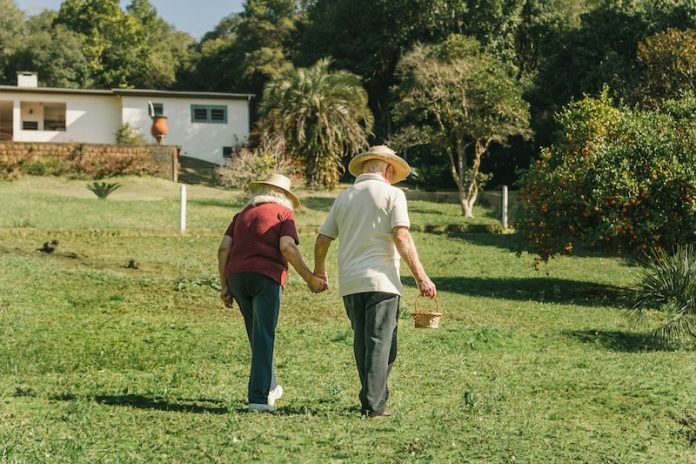
Spatial navigation, the ability to find our way from one place to another, is a skill we use daily. This skill varies among people based on practice, cognitive ability, and childhood environment.
However, research has shown that our ability to navigate tends to decline with age.
This decline has usually been linked to worsening spatial memory due to natural changes in the brain. But recent studies suggest that changes in how we explore new environments might also play a role.
A new study has observed a shift in exploration behavior in middle-aged humans, similar to changes seen in aging animals like insects, rodents, and fish. Published in Frontiers in Aging Neuroscience, the study provides new insights that could have clinical applications.
Dr. Vaisakh Puthusseryppady, a postdoctoral researcher at the University of California at Irvine, led the study. He explains, “Middle-aged individuals explore new environments less extensively than younger individuals. They seem to focus on learning specific important locations rather than the overall layout.”
The study involved 87 middle-aged participants (around 50 years old) and 50 young participants (around 19 years old), with no history of neurological or psychiatric illnesses. The participants were tested on how well they could explore and navigate a virtual maze.
The maze included crossroads and corridors with hedges, and various objects placed at strategic locations served as landmarks.
During the first phase, participants were free to explore the maze and learn the locations of the objects. In the second phase, they had to navigate between two randomly chosen objects within 45 seconds, based on what they had learned.
As expected, young participants had a higher success rate in finding their way through the maze. However, further analysis showed that this success was partly due to differences in how the two age groups explored the maze.
Middle-aged participants traveled less distance, paused longer at decision points, and visited more objects than the younger participants.
Dr. Mary Hegarty, a professor at the University of California at Santa Barbara and a joint corresponding author, noted, “These differences were so pronounced that we could predict a participant’s age group using artificial intelligence based on their exploration behavior.”
The reduced exploration in middle-aged individuals may be linked to age-related changes in the brain’s navigation network, particularly in areas like the medial temporal and parietal lobes.
The findings suggest that training middle-aged adults to explore new environments more effectively could help improve their navigation skills and maintain cognitive function.
Co-author Daniela Cossio, a Ph.D. student at the University of California at Irvine, emphasized the potential for such training, “If we train middle-aged people to explore more thoroughly—covering greater distances and visiting connecting paths more systematically—it might improve their spatial memory and slow cognitive decline.”
Dr. Elizabeth Chrastil, another corresponding author and an associate professor at the same institute, added, “We are currently investigating whether these changes in exploration behavior can be detected in people at risk for Alzheimer’s disease, as well as in those already diagnosed.
We believe that altered exploration behavior could become a new clinical marker for early cognitive decline related to Alzheimer’s.”
This study highlights the importance of how we explore new environments as we age and opens up new possibilities for interventions to help maintain cognitive health in middle-aged and older adults.
If you care about brain health, please read studies about inflammation that may actually slow down cognitive decline in older people, and low vitamin D may speed up cognitive decline.
For more information about brain health, please see recent studies about common exercises that could protect against cognitive decline, and results showing that this MIND diet may protect your cognitive function, prevent dementia.
The research findings can be found in Frontiers in Aging Neuroscience.
Copyright © 2024 Knowridge Science Report. All rights reserved.



